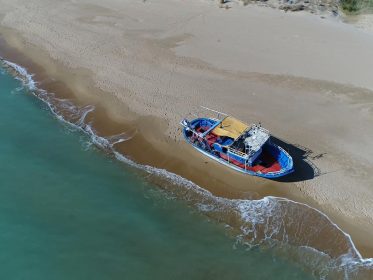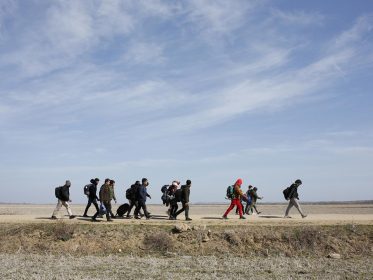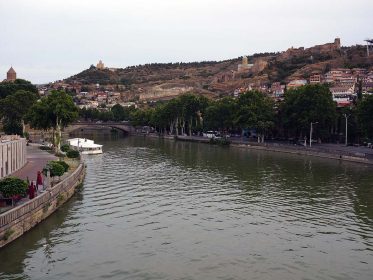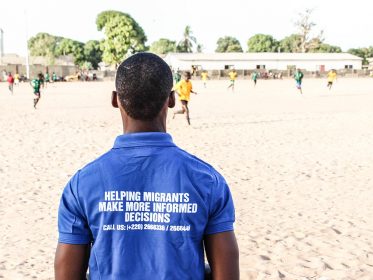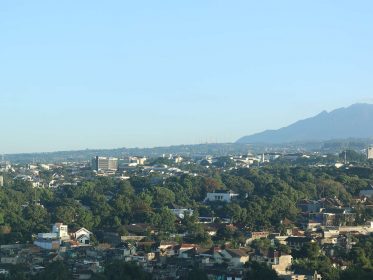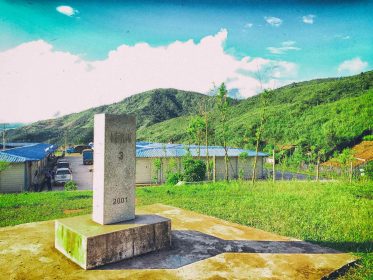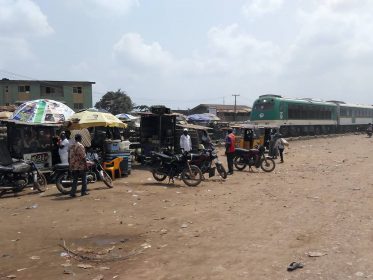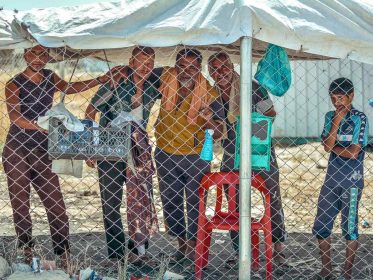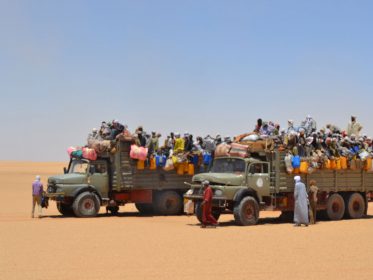Strategic communications
Seefar’s campaign in Niger has successfully raised awareness amongst 7,500 transit and potential migrants about the risks and realities of irregular migration, enabling them to make safer migration decisions and avoid serious and potentially deadly risks on the journey to Europe. The campaign ran from June 2019 to May 2020 and was aimed at providing …
Seefar’s migration communications campaign in Afghanistan has successfully resulted in more than half of consultees making safer and more informed migration decisions, and avoiding potentially deadly encounters on the journey to Europe. The campaign ran from February to December 2020 and was aimed at informing potential Afghan migrants about the risks and realities of irregular …
Campaign to inform migrant decision making in Afghanistan Read More »
This paper demonstrates the power of a country’s brand name in attracting and repelling people considering irregular migration – a dynamic we label your “brand impact”. Four out of five European countries show a clear positive or negative effect in a test designed to isolate the influence of the country’s name. For countries engaged in …
Since 2015, Seefar has worked on several projects in West Africa spanning Niger, Mali, The Gambia, Nigeria, Burkina Faso, Ivory Coast, Senegal, and Guinea. Our work in the region centres around themes such as modern slavery, and drivers of migration. Recent projects based in and on West Africa have included major mixed-methods research and strategic …
Seefar in West Africa: mission-driven and innovative with a sustained impact Read More »
Modern slavery is a global issue deeply connected to labour migration. Migrants and those pursuing work abroad are often at risk of financial, emotional and physical exploitation. Overseas domestic workers are particularly vulnerable because they live and work in private households. In Indonesia, prospective female domestic workers face acute risks early on in their migration planning but …
Who are the most vulnerable Indonesian prospective migrants? Read More »
The Government of Vietnam, Vietnamese civil society, and donors to Vietnam have tried a lot of different approaches to communications campaigns on human trafficking and modern slavery. Interventions have ranged from television and celebrity outreach to informational packets distributed to local authorities and community members. Yet, few of these projects have been able to demonstrate impact on the …
What Next for Trafficking and Slavery Communications Campaigns in Vietnam? Read More »
As irregular migrants continue to embark on dangerous journeys, governments and civil society have sought to reduce the inherent dangers. Migrant communications have emerged as an important part of this strategy alongside traditional humanitarian responses. The European Commission engaged Optimity Advisors and Seefar to study information consumption and decision-making processes among West Africans planning to …
How West African migrants engage with migration information en route to Europe Read More »
Seefar has been working in North Africa, East Africa, the Horn of Africa and West Africa continuously since we were created. Our East African and North African presence is one of our biggest, with teams working on multiple projects including research and surveys, program design, consulting, counselling, evaluating programs and strategic communications. West Africa is …
In 2016 Seefar completed a project in North Africa and the Horn of Africa to assist Eritrean migrants to make more informed decisions about onward migration. This was a communications project conducted in Ethiopia, Uganda, Sudan and Libya. It delivered counselling services and information in person to several thousand migrants in transit and in total reached almost 200,000 migrants. The campaign involved direct counselling …
